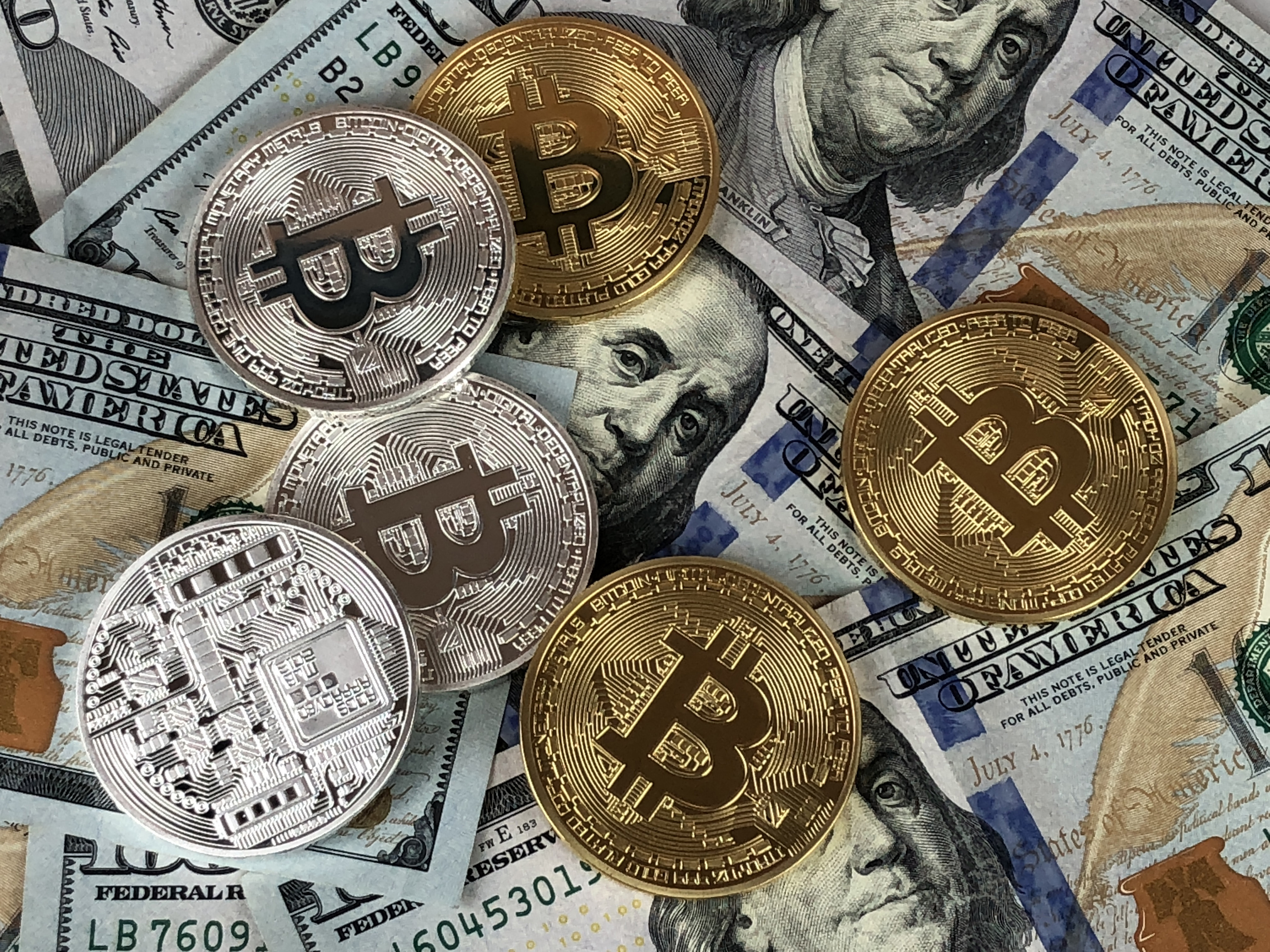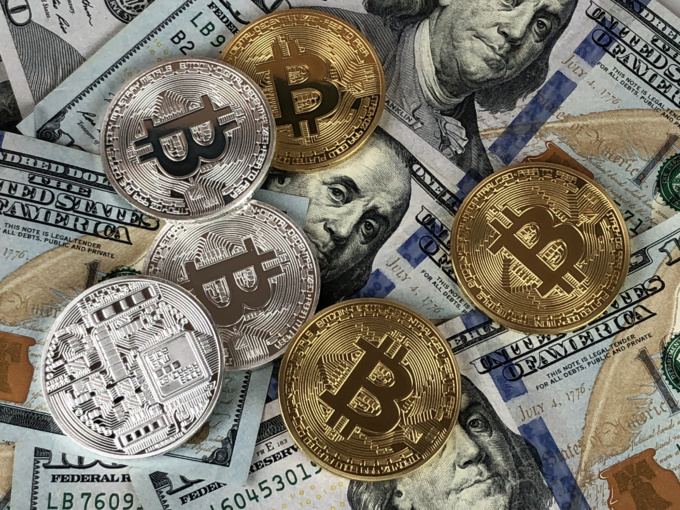This week, the gold price peaked in August 2016 ($ 1,369.4 an ounce) amid the volatility of foreign exchange markets. The Bitcoin rate also grew up to $ 8 thousand, but it only restored its position as of the end of March. Since the beginning of this year, Bitcoin has lost about 40% of its value. This situation allowed many experts to assume that Bitcoin, at least at the moment, is inferior to gold. The latter seems to be the most attractive shelter asset, where investors hide in times of instability in the currency or stock markets of the world.
Bitcoin, created in 2009, became popular in 2010-2013, when the world markets turned to the next stage of the so-called currency wars. The main players were United States, China, the European Union, Japan and some other countries, which sought to omit rates of their currencies to support domestic producers. Constant and unpredictable jumps of traditional currencies led to the fact that increasingly more people began to invest in Bitcoin, which is not controlled by governments of any particular country or a central bank. Since then, Bitcoin has been gradually winning the unofficial title of the main shelter asset.
However, Bitcoin's rate began to fall precipitously, and more governments began to restrict operations with it on their territory. All this led to the fact that investors began to lose faith in the crypto currency and return to gold.
Some observers suggest that this shift may have a longer-term character. The reviewer of the Market Mogul portal John Ho believes that now Bitcoin is experiencing the same turmoil that happened to gold, that is, a decrease in investor confidence caused not only by momentary fluctuations. The reviewer recalls the events of the 1960s and 1970s, when the gold standard of the centuries-old authority was hit in the course of the conflict between the US and France. "Gold was the main currency, and all payments were secured by gold. However, at some point it became clear that gold had become too slow to maintain the dynamics of capitalism... Its supplies grew more slowly than the world economy. This led to a reduction in the amount of money in relation to the growing number of transactions. The resulting reduction in liquidity and the refusal to reevaluate gold led to deflationary consequences," the observer notes.
A similar situation - the loss of long-term investor confidence - is now observed with Bitcoin. This can be explained by a recent fall in the exchange rate, and also by a number of factors. The vigorous mining led to the fact that the costs for bitcoin mining sharply increased.
Last year, some experts predicted that at the current rate of growth of mining, by 2020, it will consume the same amount of electricity as it is now consumed all over the world.
The cost of operations with Bitcoin has also significantly increased. This led to the fact that a number of major Internet sites, including the online store Steam, stopped taking Bitcoin for payment. In December last year, they explained that "the commission charged by the Bitcoin network users jumped sharply, reaching $ 20 per transaction - compare this figure to $ 0.2 that was charged when we just started taking Bitcoin." In late March, it became known that the popular social news resource Reddit stopped taking Bitcoin as payment for the "golden" user status.
Among other negative factors that reduce long-term investor confidence in bitcoins, Mr. Ho also refers to the still insufficient number of qualified professional dealers and traders working with crypto currency. It turns out that Bitcoin has gradually turned into something that it initially opposed. "Growing state regulation, decreasing liquidity, high volatility and growing costs for power consumption continue to reduce the capacity of Bitcoin," the reviewer concludes.
source: themarketmogul.com
Bitcoin, created in 2009, became popular in 2010-2013, when the world markets turned to the next stage of the so-called currency wars. The main players were United States, China, the European Union, Japan and some other countries, which sought to omit rates of their currencies to support domestic producers. Constant and unpredictable jumps of traditional currencies led to the fact that increasingly more people began to invest in Bitcoin, which is not controlled by governments of any particular country or a central bank. Since then, Bitcoin has been gradually winning the unofficial title of the main shelter asset.
However, Bitcoin's rate began to fall precipitously, and more governments began to restrict operations with it on their territory. All this led to the fact that investors began to lose faith in the crypto currency and return to gold.
Some observers suggest that this shift may have a longer-term character. The reviewer of the Market Mogul portal John Ho believes that now Bitcoin is experiencing the same turmoil that happened to gold, that is, a decrease in investor confidence caused not only by momentary fluctuations. The reviewer recalls the events of the 1960s and 1970s, when the gold standard of the centuries-old authority was hit in the course of the conflict between the US and France. "Gold was the main currency, and all payments were secured by gold. However, at some point it became clear that gold had become too slow to maintain the dynamics of capitalism... Its supplies grew more slowly than the world economy. This led to a reduction in the amount of money in relation to the growing number of transactions. The resulting reduction in liquidity and the refusal to reevaluate gold led to deflationary consequences," the observer notes.
A similar situation - the loss of long-term investor confidence - is now observed with Bitcoin. This can be explained by a recent fall in the exchange rate, and also by a number of factors. The vigorous mining led to the fact that the costs for bitcoin mining sharply increased.
Last year, some experts predicted that at the current rate of growth of mining, by 2020, it will consume the same amount of electricity as it is now consumed all over the world.
The cost of operations with Bitcoin has also significantly increased. This led to the fact that a number of major Internet sites, including the online store Steam, stopped taking Bitcoin for payment. In December last year, they explained that "the commission charged by the Bitcoin network users jumped sharply, reaching $ 20 per transaction - compare this figure to $ 0.2 that was charged when we just started taking Bitcoin." In late March, it became known that the popular social news resource Reddit stopped taking Bitcoin as payment for the "golden" user status.
Among other negative factors that reduce long-term investor confidence in bitcoins, Mr. Ho also refers to the still insufficient number of qualified professional dealers and traders working with crypto currency. It turns out that Bitcoin has gradually turned into something that it initially opposed. "Growing state regulation, decreasing liquidity, high volatility and growing costs for power consumption continue to reduce the capacity of Bitcoin," the reviewer concludes.
source: themarketmogul.com



















